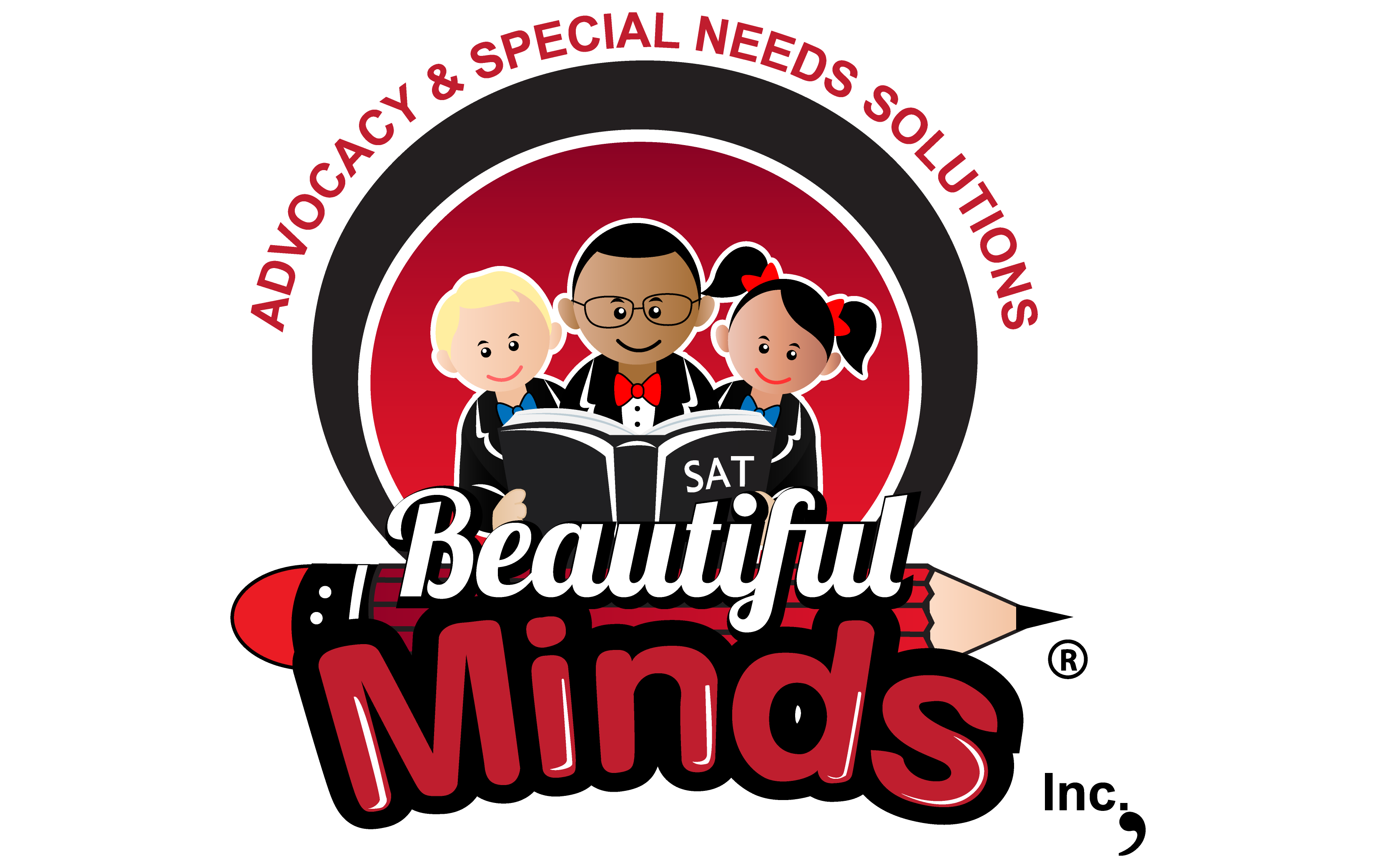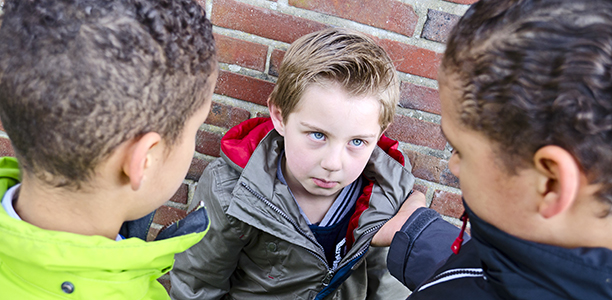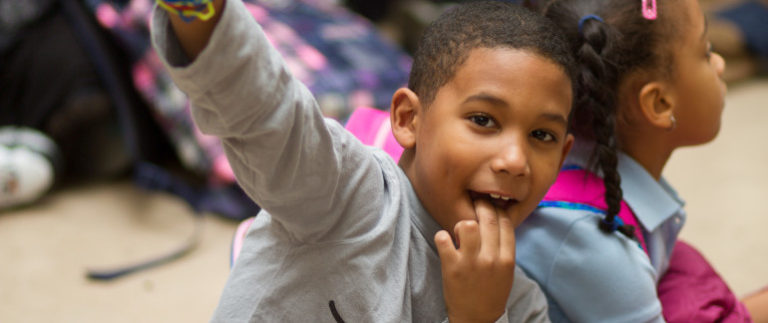Parenthood is a rich journey. When you add special needs into the mix, the parenting experience is amplified, adding poignancy and humor. Here are a few observations from my tenure in special needs parenting.
1. Showers are a double-edged sword. You never know when the kids will bust into the bathroom to show you the new color they painted the dog. Or sometimes they actually leave you alone and you take your time savoring the peace, knowing that you’re gambling between finding all well or discovering that they have managed to get past the lock, deadbolt, chain and alarm on the outside door, and you’ll find them marching down the street in their PJs with several neighbors following them in their cars in an impromptu parade.

2. Somehow the child whose occupational therapist reports low finger strength and coordination can manage to unlock every device known to humankind and elope out the front door.
3. A hearing-impaired child can somehow hear you open your secret chocolate stash from three rooms away.
4. You are well acquainted with the strange blend of pride and chagrin that occurs when your child with cognitive impairment outsmarts you.
5. Social media isn’t just an outlet, it’s a lifeline. Some of your closest confidants and dearest friends live in your computer. When you see them in real life you can pick right up on conversations even if it’s been three years since the last time, but there are plenty you have never met. They are scattered across the country and world, but you share a sacred connection, and they are like family.
6. A good night’s sleep is your Holy Grail. You have heard that such a thing exists, and the notion is intoxicating. You pursue it as your life’s mission only to find it always elusive. Though many still claim it exists, you’re beginning to believe it’s merely a myth.

7. You wish there was a way to Teflon-coat feelings. Whether it’s the sting of a stranger’s look or comment, the frustration of unsolicited advice, or the observation of a professional that hits too close to home, a magical elixir that would wash away the bite of the world would be heavenly.
8. You have more wisdom, depth and strength than you ever imagined possible. Your parenting experience has stretched and challenged you, and you have risen to the occasion on behalf of the child who stole your heart.
9. Your typical child(ren) have richness of compassion and empathy and value all people for who the are.
Dr. Ifeanyi Ufondu is Founder and Owner of Beautiful Minds Inc.- Advocacy & Special Needs Solutions. He is America’s leading Special Needs Advocate and is currently based in Dallas, TX.
By Dr. Ifeanyi Ufondu August, 22. 2016
Due to their unpredictable nature, transitions in general, can be very difficult for our children with special needs. The new school year creates a whole host of transitions that made me want to devote this month’s column to tips for helping your child make a smooth entrance into school.
About 3-5 day prior to the beginning of the new school year, make a social story with your child that will create a visual map as to what he/she can expect in the upcoming days. The story does not have to be long and should include the basic morning routine (getting dressed, taking the bus, etc.), what the child can expect during the course of the school day (class activities, snack/lunch breaks, recess) and then the schedule for the afternoon/evening (bus ride back, additional therapies, dinner, etc). You may want to laminate the covers so that you can reuse and don’t forget to add a place for your child to check off the activity once the event has occurred.
Additionally, I encourage you to write your own specific narrations to the story, for example, letting the child know that the noise and activity levels during certain parts of the day are different and what he/she can do about it to reduce their own stress levels.
If possible, allow your child an opportunity to visit his/her new classroom, 1-2 days ahead of the opening of school. Typically, arrangements can be made either directly with the teacher or with the school administrator to allow your child the opportunity to spend a few minutes getting the ‘lay of the land’. You may even want to encourage your child to add a small gesture (special sticker) to the classroom set up so that come the first day of school, his/her efforts are acknowledged by the teacher for the creation of an especially warm welcome.
For middle and high school students; special arrangements can often be made in advance of the first day of school to help your child learn how to navigate the hallways as they go from class to class and how to get to and open their lockers in a timely fashion.
Children with special needs are often plagued with auditory processing disturbances. While not traditionally impacting actual hearing, this can nonetheless make the auditory instructions by the teacher often difficult to understand. I suggest supplementing the verbal messages with a visual schedule that can be placed on the board and/or on the child’s desk to help him/her know exactly what is going on in the classroom and what the upcoming expectations are. Teachers can also encourage their special needs student s to be their ‘helpers’. This gesture asks the child to explain to the class what is going on, or help support a fellow student in class. What this typically accomplishes is twofold; the teacher can check to see if the student fully understands the lesson while elevating the status of the child with challenges by making him/her ‘the special helper’.
Finally, I encourage the establishment of an alliance with your child’s teacher. That early bond will be crucial to your working together as a team throughout the school year. BEAUTIFUL MINDS INC.
At Beautiful Minds Inc. we understand that strengthening skills through play is a proven strategy to help kids learn. For kids with special needs, video games can offer opportunities to practice everything from communication skills to organization — even social interactions — in a comfortable environment where players set the pace. While games designed specifically for kids with special needs can address certain issues, many mainstream titles can support your kid’s learning. Dr. Ifeanyi Ufondu, founder and psychologist at Beautiful Minds Inc. -Advocacy & Special Needs Solutions states, “Mainstream games can boost a sense of independence and confidence in kids with special needs, provide the ability to ask for help, and let them challenge themselves.” Try these games to help kids with special needs in these five areas:
COMMUNICATION
Games that promote visual storytelling, social modeling, and language patterns can help kids with speaking, listening, and communicating. Learn more about communication challenges.
Cool School: Where Peace Rules, Mac, Windows
This free game helps kids practice conflict resolution.
Itzazoo, Windows
Using “living ink” technology, kids’ drawings are animated and incorporated into this unique learn-to-read game.
Storybook Workshop, Nintendo Wii
Players take turns reading fairy tales aloud, and the game changes your voice to fit the scene.
Apps for kids on the autism spectrum
MOTOR SKILLS
Games that encourage movement — from dancing to sports to drawing to handwriting — strengthen muscle memory and put a name to an action. Learn more about motor skill challenges.
Active Life: Magical Carnival, Nintendo Wii
Using both the standard Wii remote and a special floor mat that tracks players’ foot movements, this collection of fantasy-themed mini-games gets kids moving as it tests their short-term memory, their ability to follow instructions quickly, and their skill at matching colors, shapes, and patterns.
Disney Fantasia: Music Evolved, Microsoft Xbox 360, Xbox One
By moving like a conductor in time with specific sounds, this innovative rhythm game teaches kids about music and provides plenty of physical exercise. Kids will feel as though they’re actually manipulating and creating music while getting a modest physical workout.
LetterSchool, iPad, iPhone, iPod Touch
LetterSchool does a great job of teaching letter writing with a three-step process: Learn the starting points for each stroke, trace the letter, and write the letter without hints. Once you draw the letter, it animates, which is a sweet reward.
Organization
Developing new routines, transitioning activities, and managing time are challenges for kids who struggle with executive functioning. Games that emphasize visual scheduling and break big jobs into smaller tasks can help. Learn more about organizational challenges.
Disaster Hero, Mac, Windows
This free Web game visually demonstrates what to do in case of emergency. Upon completion, players gain a sense of empowerment, as they will know the recommended steps for planning for, anticipating, and responding to a natural disaster.
Engineering.com Games, Mac, Windows
With about 100 engineering, physics, aerospace, and logic games, kids can find a wealth of opportunities to practice skills such as decision-making, deduction, and prediction that help build understanding of sequential directions.
Super Mario Maker, Nintendo Wii U
Kids learn step-by-step processes as they use the Wii U GamePad’s stylus to design, create, and share their very own Super Mario adventures.
READING & WRITING
Games that give both verbal and written instructions, break down directions into small steps, and focus on the player’s strengths can help boost reading and writing skills. Learn more about reading and writing challenges.
Elegy for a Dead World, Mac, Windows
It sounds creepy, but Elegy for a Dead World is a free-form storytelling game that gives kids the freedom to write whatever they want using prompts or their own imaginations.
Mia Reading: The Bugaboo Bugs, Mac, Windows
With 12 learning activities and four levels of difficulty, Mia Reading takes kids on a super-engaging learning adventure that covers a wide range of literacy basics, including associating words with images, phonics, spelling, sentence structure, and more.
Scribblenauts Unlimited, Nintendo Wii U
Kids can learn about puzzle solving while exercising their vocabularies and stretching their imaginations in this highly creative puzzle adventure. When the game prompts them to help a character, kids write a word using the Wii U’s stylus, and voila — the item appears on-screen!
So let’s get out there and get gaming! Beautiful Minds Inc.
Dr. Ifeanyi Ufondu
Nigel has been attending an inner-city school in the Los Angeles Unified School District (LAUSD) since kindergarten, and has always been a quiet student.
A few years ago, when his teacher recommended he be evaluated for an Individualized Education Program (IEP), the Mom checked in with Beautiful Minds Inc. – Advocacy & Special Needs Solutions first. She had been through the process before with her oldest child, Nigel and knew full well the long term consequences of having a child “labeled” as needing special services.
According to Beautiful Minds Inc. – Advocacy & Special Needs Solutions founder and advocate, Ifeanyi A. Ufondu “The decision to have a child evaluated within the DOE system cannot be taken lightly. It’s a lifelong designation that will follow that child for their entire academic journey.” Ufondu further asserts, “Every future teacher your child encounters will have certain perceptions and expectations about him/her before they enter the classroom. Every new school will have to be assessed for their ability to serve that child’s needs, or whether they can gain the funding to do so.”
THE IEP JOURNEY CAN BE A LONG ONE
A family has to stay on top of endless meetings, conference calls, and appointments with education specialists. Decisions about where the student can enroll for middle and high school, how they will be administered the standardized tests, whether they will require a special classroom, it goes on and on, year after year.
Even if a learning disability is clear to everyone, a family may find that there are no public schools available with the services they need. At this point, some parents hire an advocate and at times even must hire a lawyer to sue the district to reimburse them for private schooling, or special services that aren’t covered. This is all daunting, especially if a family has limited time or financial resources.
HONORING A PARENT’S DECISION
Because of her past experience, Nigel’s Mom was inclined to push back and tell the school no. She discussed this decision with Beautiful Minds Inc. – Advocacy & Special Needs Solutions, but in the end it was her decision to make, and she chose to forgo having the evaluation done. This is what we call an EMPOWERED parent, one that decides what’s best for her child, and stands by it.
This semester, and now in third grade, Nigel was placed on the honor roll at his school, and he is thrilled. His tutor, Michael Diaz of Beautiful Minds Inc. – Advocacy & Special Needs Solutions says, “This has built Nigel’s confidence so much that he is tackling the grade level book they are reading in class,” Because of Winn-Dixie by Kate DiCamillo.
At Beautiful Minds Inc. – Advocacy & Special Needs Solutions, we are not suggesting for a minute that a child with a possible learning disability avoid getting the help that they need. But, we must stress how important it is for parents to seek outside opinions from educators and advocates they trust. Having an evaluation done within the DOE system is the first step down what can be a very long road, and parents need to be certain they are making the right choice for their child.





